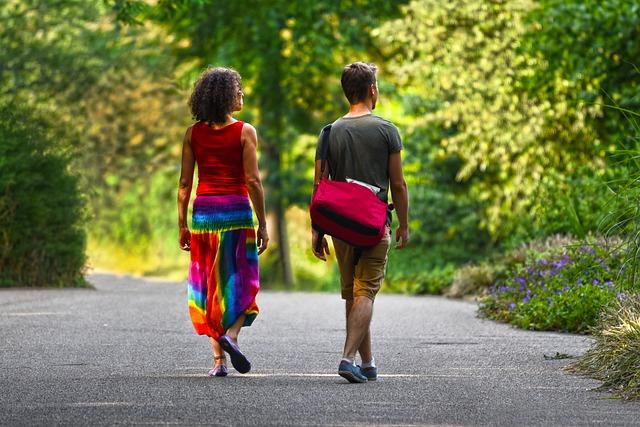In the intricate dance of modern romance, the question of whether past relationship baggage should influence our dating choices often looms large. As we navigate the complexities of love, we carry with us a tapestry of experiences—some woven with joy, others tinged with heartbreak. But how much should these remnants of past connections weigh on our decision to embrace new ones? In this exploration, we delve into the nuances of emotional history, examining its potential impact on budding relationships and uncovering the delicate balance between learning from the past and living in the present.
Unpacking Emotional Luggage: Understanding Its Impact on New Relationships
Emotional luggage from past relationships often accompanies us like a shadow, subtly influencing our perceptions and reactions in new connections. This baggage can manifest as trust issues, fear of vulnerability, or expectations set by previous experiences. While it’s natural to carry remnants of past emotions, it’s crucial to recognize how they may shape your interactions with a new partner.
- Trust Issues: Past betrayals can lead to skepticism, making it challenging to open up.
- Fear of Vulnerability: Negative experiences may cause reluctance to share feelings, hindering emotional intimacy.
- Unrealistic Expectations: Comparing a new partner to an ex can create pressure and strain on the relationship.
Being aware of these patterns allows for a more mindful approach to dating, enabling individuals to address and manage their emotional baggage effectively. Embracing personal growth can transform these experiences into valuable lessons rather than barriers.

Balancing the Scales: Evaluating Fairness in Relationship Baggage
When evaluating how past relationship baggage might impact your decision to date someone, it’s essential to consider the balance between empathy and self-preservation. Relationships are complex, and everyone carries a unique set of experiences. But how do you ensure that this baggage doesn’t tip the scales too far in either direction?
- Understanding and Compassion: Everyone has a past, and showing empathy can build trust and intimacy.
- Setting Boundaries: Recognize your limits and communicate openly about what you’re comfortable handling.
- Assessing Growth: Consider whether they’ve shown personal growth and a willingness to learn from past mistakes.
- Prioritizing Self-Care: Ensure that their baggage doesn’t overshadow your well-being and emotional needs.
Striking a fair balance involves recognizing the difference between supporting someone through their past and becoming overwhelmed by it. By focusing on open communication and mutual respect, you can navigate the intricacies of past baggage with both understanding and caution.

Open Conversations: Navigating Past Experiences with Empathy
When exploring new romantic possibilities, it’s essential to approach each individual’s past with empathy and understanding. Everyone carries experiences that have shaped who they are today, and these can manifest as emotional “baggage.” Rather than viewing these experiences as deterrents, consider how they contribute to a person’s depth and resilience.
- Understand the Context: Everyone’s past is unique. Seek to understand the context and how it has impacted their perspective on relationships.
- Communicate Openly: Encourage honest conversations about past experiences. This can foster trust and transparency, helping both parties to navigate potential challenges together.
- Recognize Growth: Acknowledge the growth and lessons learned from past relationships. This insight can be invaluable in building a stronger connection.
Approaching past relationship experiences with an open mind allows you to see beyond the surface and appreciate the complexities that make each person unique. Remember, empathy is key to understanding and building meaningful connections.

Crafting Your Path: Setting Boundaries and Building Trust
When embarking on a new relationship, it’s essential to establish clear boundaries that reflect your comfort levels and emotional needs. These boundaries are not just personal lines drawn in the sand but a foundation for mutual respect and understanding. Consider what you need to feel secure and respected, and communicate these needs openly. This practice not only safeguards your well-being but also sets a precedent for how you wish to be treated.
Building trust is another crucial aspect, and it often requires patience and empathy. Here are some tips to foster trust:
- Open Communication: Encourage honest dialogue about past experiences and current expectations.
- Consistency: Demonstrate reliability through your actions and words.
- Empathy: Show understanding and compassion towards your partner’s past, acknowledging their journey.
By thoughtfully crafting these elements, you create a supportive environment that honors both your past experiences and your future aspirations.




